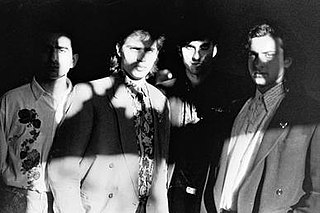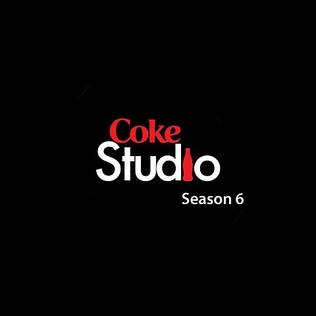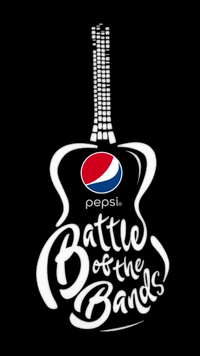
Vital Signs were a Pakistani pop and rock band formed in Rawalpindi in 1986 by two Peshawar University students. After their formation, they soon became Pakistan's first and most commercially successful as well as critically acclaimed act. The band's popular lineup consisted of keyboardist Rohail Hyatt, bassist Shahzad Hasan, guitarist Nusrat Hussain and vocalist Junaid Jamshed. Rooted in Rawalpindi with some influence from Western music during the conservative regime of President Zia-ul-Haq, the Vital Signs utilizes several genres, ranging from pop music to rock, and often incorporating classical and other elements in innovative ways. In the early 1990s, they came to be perceived by many Pakistani fans and country's cultural observers as a "promising new era of cultural revival". Their enormous popularity significantly opened a new wave of music and a modern chapter in the history of Pakistan.

Junaid Jamshed Khan was a Pakistani singer-songwriter, television personality, fashion designer, actor, engineer, and preacher. Jamshed first gained nationwide and international recognition as the vocalist of Vital Signs. Their 1987 album, Vital Signs 1 included the hit singles "Dil Dil Pakistan", and "Tum Mil Gaye". The commercial success of the album helped develop Pakistan's rock music industry.

Coke Studio Pakistan is a Pakistani television programme and a part of the international music franchise, Coke Studio, which features studio-recorded music performances by established and emerging artists. It is the longest-running annual television music show in Pakistan, airing annually since 2008. The programme's concept originated in Brazil and has subsequently expanded its reach worldwide.
Zulfiqar "Xulfi" Jabbar Khan is a Pakistani composer, singer-songwriter, music producer and a guitarist. Starting his career in 1994, Khan is the recipient of multiple awards in Pakistan. He is currently working on the television series Coke Studio, for which he is the producer and mentor.

The fourth season of the Pakistani music television series Coke Studio Pakistan commenced airing on 22 May 2011 and ended on 17 July 2011.
Rizwan–ul–Haq is a Pakistani guitarist, music composer, and backing vocalist, earning fame as lead guitarist for the acclaimed band, Vital Signs.

The sixth season of the Pakistani music television series Coke Studio Pakistan premiered on 20 October 2013 and concluded on 5 January 2014. All songs were arranged and produced by Rohail Hyatt. The show was produced at Rohail Hyatt's production company, Frequency Media Pvt. Ltd., and distributed by Coca-Cola Pakistan.

The seventh season of the Pakistani music television series Coke Studio Pakistan premiered on 21 September 2014 and aired its final episode on 22 November 2014. Previously, it was scheduled to premiere on 7 September 2014, but was delayed due to an ongoing political crisis which caught the media attention everywhere. Season premiered under the tagline of Sound of the Nation.

Pepsi Battle of the Bands is a Pakistani television series, originally based on the concept of Battle of the Bands, first aired in 2002 on PTV Home. The show was revived in 2017.

Bayaan is an alternative rock band from Lahore, Pakistan. It is the winning band of Pepsi Battle of the Bands Season 3 in 2018. Appeared in Nescafe Basement, the band had performed throughout Pakistan before appearing in Pepsi Battle of the Bands. The 5-member band consists of Asfar Hussain (vocalist), Haider Abbas (bassist), Shahrukh Aslam (guitarist), Muqeet Shahzad (guitarist), and Mansoor Lashari (drummer). The band members Shahzad and Abbas knew each other for more than a decade and played together in the school band. They moved to the underground music circuit and met Mansoor Lashari. In between, Lashari and Abbas became a part of Nescafe Basement where they performed with Hussain and Aslam. Thus, Bayaan came into existence. Bayaan is managed by their bassist, Haider Abbas.

The twelfth season of the Pakistani music television series Coke Studio Pakistan commenced airing on 11 October 2019, and concluded on 29 November 2019. The season was produced by Rohail Hyatt, after Ali Hamza and Zohaib Kazi stepped down from the role after just one season. Coca-Cola Pakistan remained as an executive producer.
Mubarik Mubarik is a Balochi and Punjabi-language song sung by Atif Aslam and Banur band performed in season 12 of Coke Studio Pakistan. The Balochi lyrics are traditional folk verses while the Punjabi lyrics were penned by Atif Aslam.
The 2020 edition of the Pakistani Music television series Coke Studio Pakistan, titled as Coke Studio 2020, commenced airing on 4 December 2020 and concluded on 25 December 2020. The season was produced by show's founder Rohail Hyatt and distributed by Coca-Cola Pakistan.

The fourteenth season of the Pakistani music television series Coke Studio Pakistan was produced by Zulfiqar Jabbar Khan after Rohail Hyatt stepped down from the role. Coca-Cola Pakistan was the executive producer of the show. Season 14 featured 13 original songs, each with its own visuals, and ran from 14 January 2022 to 22 March 2022.
Abdullah Siddiqui is a Pakistani singer, songwriter, and producer associated with Urdu and English language music. He made his breakthrough appearance on Nescafé Basement season 5 with his song "Resistance", and followed it up by making his album debut with Metannoya in 2019. He further released Heterotopia (2020), dead Beat poets (2021) and dead Beats poets: side B (2021).

Coke Studio Bangla, also known as Coke Studio Bangladesh, is a Bangladeshi television series which is the local installment of the Coke Studio franchise, featuring studio-recorded music performances by established and emerging Bangladeshi artists with the goal of promoting Bangladeshi music.
Faris Shafi is a Pakistani rapper, songwriter and actor.

The first season of the Indian music television series, Coke Studio @ MTV, ran from June 17, 2011, to August 19, 2011. The season featured nine regular episodes, culminating in a special "Best of Coke Studio @ MTV Season 1" episode.












